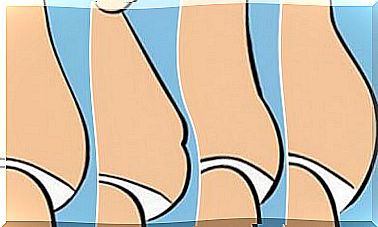Is Napping Fattening?
To avoid that the nap hinders digestion and favors the accumulation of fat, it is important not to overeat before taking it, as well as to rest only for a maximum of 25 minutes.
There are people who are in favor of naps and others who are not.
Some indicate that resting after lunch fixes fat in the stomach and others that sleep is restorative and allows the body to even lose weight.
In an article in the magazine La Opinion de Murcia it was explained that naps for 40 minutes or more are linked to a strong increase in the risk of developing metabolic syndrome, a set of health problems such as high blood pressure, high cholesterol, excess fat around the waist and blood sugar, which raise a person’s risk for heart disease.
Do you want to know what would be the possible answer to the question of whether napping makes you fat? Then, join us.
Taking a nap… Does it prevent us from losing weight?
That is a statement that many say with all conviction. To know if it is true, we must analyze a little the reasons that led us to think in this way.
Although the nap is relaxing and helps us not get so tired at night, it could also cause a slowdown in the metabolism. This results in us gaining weight.
Naps are normally taken after lunch. At that time the body’s blood should take care of digestion. That is why we feel sleepy and lacking in energy, and thus, we automatically become sleepy.
Don’t forget to read: 5 unhealthy habits that cause indigestion and acid reflux

However, we must keep the metabolism active so that the digestive processes finish faster and we can continue with our routine.
If we take a nap, what we will do is increase this slowdown. We promote the accumulation of fat and the difficulties to burn the calories that we have ingested during the meal.
In addition, after having taken a nap, it is a bit difficult for us to return to work or do our activities as before lunch. It can take a lot longer to finish the tasks.
To prevent sleep from overtaking us after eating, we must divert our attention to something else, such as washing dishes or going for a walk.
It is not a matter of exercising or going for a run in the park. It can be any quiet but not relaxing activity, so that once the digestion process is finished, the blood returns to its place and our brain is clear.
What to do to make the nap effective?
So that the time to rest in bed or on the couch after lunch is really restorative and does not add kilos or reduce productivity, pay attention to these tips:
1. Don’t drink coffee when you wake up
When we wake up from naps we are a bit disoriented and still asleep. For this reason, many of us make the mistake of giving “fuel” to the body, through the consumption of coffee. However, caffeine is not an ally right now.
This substance acts on the central nervous system and also stimulates the brain. What’s wrong with that? It could cause insomnia, stress or hyperactivity.

2. Don’t overeat
A large meal is not a good combination with a nap. The more we eat, the more the body needs to ask for a break because the digestion process will take more time and resources.
No repeating the dish, or drinking alcohol at lunch.
Binge eating is what makes us fat, not the hours we sleep afterward. When we lie down to rest the stomach it cannot do its job properly. Therefore, a light menu packed with raw vegetables and fruit will be perfect.
3. Sleep as dark as possible
Since the siesta occurs in one of the brightest moments of the day, it would be good if the curtains or blinds were closed. If that’s not possible, put on a mask.
Sleeping clearly prevents the brain from relaxing and getting enough rest. Therefore, when you wake up you will be more tired than when you go to bed.
In turn, it is recommended to leave a window open to help oxygenation during the nap.

4. Rest a few minutes
Napping should be in a short time. No more than half an hour. Some doctors recommend 25 minutes of sleep for the body and brain to benefit. Doing it for longer means entering the deep sleep stage.
During this phase the mind sets in motion the same mechanisms as when we sleep at night. For this reason, it will be difficult for us to function as we need later.
5. Choose the sofa and not the bed
Sitting down for a nap is better than lying down completely. If you lie down in bed, at least do not cover yourself or put your pajamas on as if it were night. Being reclined allows that the sleep does not become deep and that we can wake up faster.
Follow these tips to prevent napping from slowing down your metabolism and helping you achieve a truly restful sleep.









